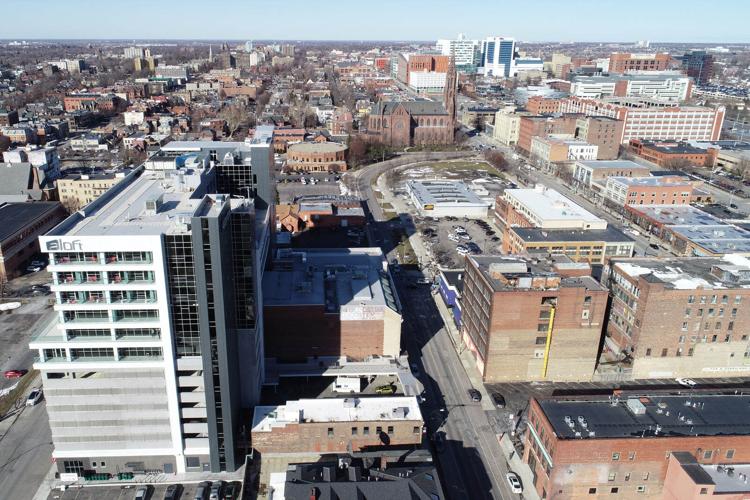WHAT IS AN ANTI-RACIST, SOCIALLY JUST, AND ENGAGED UNIVERSITY?
BY HENRY-LOUIS TAYLOR, JR.
The building of an anti-racist, socially just, and engaged university is an idea whose time has come. The COVID-19 pandemic and the brutal murder of George Floyd laid bare the depth of racism and social class inequality in the United States. The university, I maintain, must participate in the battle to solve these socioeconomic problems and build a racially equitable and just society. But to do this, the university must reimagine itself as a public good that is inextricably aligned with Blacks, Indigenous people, Latinx, people of color, and those whites locked out of the centers of power.
Today, we take the first step toward envisioning such a university—a place that is anti-racist, socially just, and engaged with communities of color, and all people confronting injustice. The building of such a progressive institution must be a collaborative effort by the entire university community—faculty, staff, and students. This aspiration poses the question, what is an anti-racist, socially just, and engaged university? I am going to offer a broad definition and then let us fill in the details during the brainstorm. The reason is that we want to co-create a definition, which is produced by the participants in this brainstorm.
I believe that an anti-racist, socially just, and engaged university must possess, minimally, three interrelated characteristics. First, such as institution must be dedicated to the production of knowledge for social change. In the anti-racist university, knowledge production fuels social action, because it seeks to understand the world so it can change it. Second, the anti-racist university works with oppressed groups to solve the socioeconomic, political, and cultural problems they face. The former U.B. president, William Greiner, once said, “The great universities of the 21st century will be judged by their ability to solve urgent social problems.” Third, and most importantly, the university is a center of teaching and learning. Thus, the anti-racist university must also produce students who value racial equity and social justice and who are committed to building a society based on social, economic, political, cultural, and racial justice.
The anti-racist university must, therefore, be intentional and action orientated. First, it must look inward at its governance and operational structure, including administration, teaching, research, and service, and then purge them of racism, classism, sexism, and anti-democratic tendencies. Toward this end, the anti-racist university must create a culture and actually-existing environment, which is welcoming, nurturing, and supportive of Blacks, Indigenous people, Latinx, and immigrants, as well as people of all races, ethnicities, creeds, religions, and sexual orientations. Therefore, anti-racist universities must have an anti-racist curriculum that promotes social justice and racial equity, and that teaches students how to dismantle systemic structural racism and social class inequality.
In closing, the anti-racist, socially just, and engaged university must look inward and outward, and it must reflect the change it seeks to bring about in the larger society.
Author Profile
Latest entries
 Selected Media06/03/2025Canada to expedite nation building projects to counter Trump
Selected Media06/03/2025Canada to expedite nation building projects to counter Trump Economic Development06/03/2025Tulsa plans $105m in reparations for America’s ‘hidden’ massacre
Economic Development06/03/2025Tulsa plans $105m in reparations for America’s ‘hidden’ massacre Political Corruption05/29/2025The US military, eyeing China deterrence, could draw down deployments to South Korea
Political Corruption05/29/2025The US military, eyeing China deterrence, could draw down deployments to South Korea Political Corruption05/29/2025Federal court blocks Trump from imposing sweeping tariffs under emergency powers law
Political Corruption05/29/2025Federal court blocks Trump from imposing sweeping tariffs under emergency powers law



